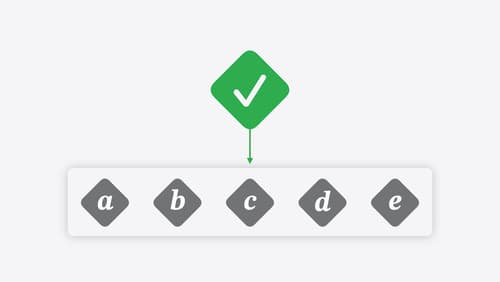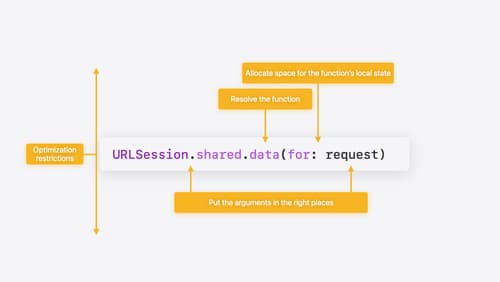Should I use Combine or async await?
Asked on 2024-08-02
1 search
Choosing between Combine and async/await in Swift depends on your specific use case and the nature of your project. Here are some considerations based on the content presented at WWDC:
Async/Await
- Ease of Use: Async/await syntax is straightforward and makes asynchronous code look and behave more like synchronous code. This can make your code easier to read and maintain.
- Concurrency: Swift's async/await is designed to handle concurrency efficiently. It allows tasks to suspend and yield the CPU to other tasks, which can improve performance in applications with many concurrent operations (A Swift Tour: Explore Swift’s features and design).
- Actors: Async/await works well with Swift's actor model, which helps manage state in a concurrent environment by serializing access to that state (A Swift Tour: Explore Swift’s features and design).
Combine
- Reactive Programming: Combine is a powerful framework for reactive programming. It allows you to work with streams of values over time, which can be very useful for tasks like handling user input, network responses, or other asynchronous data streams.
- Complex Data Flows: If your application requires complex data transformations and chaining of asynchronous operations, Combine provides a rich set of operators to handle these scenarios.
- Integration: Combine integrates well with other Apple frameworks like SwiftUI, making it a good choice if you are already using these technologies.
Testing
- Async/Await in Testing: Swift's async/await can be used in test code just as in production code, allowing for straightforward testing of asynchronous operations (Go further with Swift Testing).
Conclusion
If your application involves straightforward asynchronous operations and you prefer a simpler, more readable syntax, async/await is likely the better choice. On the other hand, if you need to handle complex data streams and transformations, Combine might be more suitable.
For more detailed information, you can refer to the following sessions:

Go further with Swift Testing
Learn how to write a sweet set of (test) suites using Swift Testing’s baked-in features. Discover how to take the building blocks further and use them to help expand tests to cover more scenarios, organize your tests across different suites, and optimize your tests to run in parallel.

Explore Swift performance
Discover how Swift balances abstraction and performance. Learn what elements of performance to consider and how the Swift optimizer affects them. Explore the different features of Swift and how they’re implemented to further understand the tradeoffs available that can impact performance.

A Swift Tour: Explore Swift’s features and design
Learn the essential features and design philosophy of the Swift programming language. We’ll explore how to model data, handle errors, use protocols, write concurrent code, and more while building up a Swift package that has a library, an HTTP server, and a command line client. Whether you’re just beginning your Swift journey or have been with us from the start, this talk will help you get the most out of the language.
